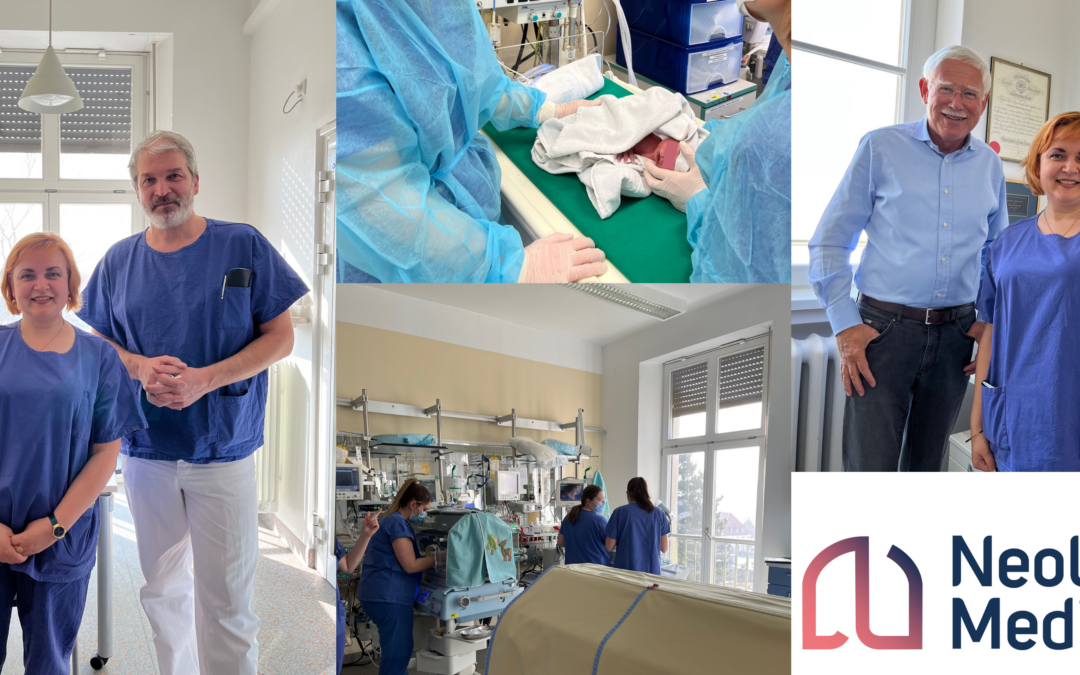Clinical Manager MD Ph.D. Tetiana Kovtiukh continues her work with creating international connections with key opinion leaders in neonatal intensive care. The company’s network is therefore continuously strengthened, and recently, Dr. Tetiana visited a Neonatal intensive care unit (NICU) in Germany at the University Hospital in Würzburg. We have done a shorter interview with her to find out more about the visit.
An important part of the company’s market preparations is to build the clinical network of key opinion leaders to prepare for the launch of the company’s medical device Neola® for continuous lung monitoring. Clinical Manager, MD Ph.D. Tetiana Kovtiukh has a central role in this, where she visits both national and international conferences and neonatal intensive care units to create connections. Recently, our Clinical Manager visited a NICU in Würzburg, where she could create a deeper understanding of their work and the challenges they face. We have done a shorter interview to summarize the visit.
Could you tell a bit more about the clinic you recently visited in Würzburg, Germany?
At the beginning of March, I visited the neonatal intensive care unit at the University Hospital in Würzburg in Germany. At their NICU they had 4 wards, with approximately 20 beds in total, for the preterm born infants and separate rooms for the term babies in need of care. In the NICU they take care of babies born from week 24, and occasionally also preterm born babies born as early as in week 22–23. Parents are not allowed to stay in the department, but mothers can come at any time to perform kangaroo care or breastfeeding.
How did you get in contact with this clinic in Germany?
I got in contact with the University Hospital in Würzburg as I met with Professor Christian Speers at the UENPS (Unition of European Neonatal & Perinatal Societies) conference in Poland in the fall of 2022. We have been in contact for potentially future collaborations. Prof. Speers is important within neonatology as he is also one of the authors of the guidelines for the treatment of respiratory distress syndrome (RDS). Prof. Speers showed great interest in Neola® and invited me to this clinic in Würzburg, where I met both him and his colleague Eric Fricauff, Head of the neonatology department. Building this kind of connection is very important in my role as Clinical Manager, as the network of key opinion leaders is crucial for the future of Neola®.
Is there anything in particular that you take with you from this visit?
The clinic in Würzburg was a large and modern facility, and as it is a University Hospital it is also in close connection with the academic society. This in turn resulted in the clinic being open to new technology, and the equipment used in the NICU was modern. They used both a portable X-ray in the department and ultrasound to monitor the babies. They also have an interest in performing clinical trials at this hospital, as a part of their work in improving care for the future.
